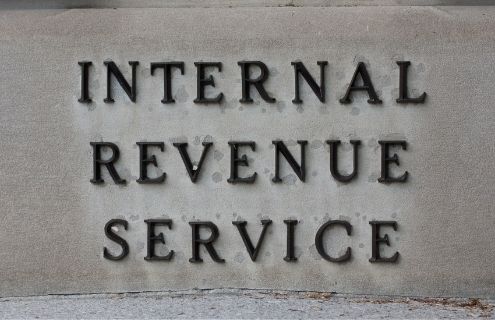The Internal Revenue Service (IRS) has offered a new second time-limited settlement initiative for certain taxpayers under audit who participated in ‘abusive’ micro captive insurance transactions.
The settlement offers will be sent out in the coming days with terms that are “stricter” than the first time-limited initiative that started in September last year.
The announcement comes as the IRS recently deployed its 12 newly formed micro captive examination teams to “substantially increase” the examinations of ‘abusive’ micro captive transactions.
The IRS also expanded its enforcement focus on ‘abusive’ micro captives insurance schemes at the start of October, urging taxpayers to consult an independent tax advisor before the 15 October filing deadline.
In the statement, the service said taxpayers should not assume it will able to settle any transactions with the IRS or chief counsel on terms more favourable than the previously announced settlement offers.
The IRS’ new offer to resolve certain cases requires substantial concession of the income tax benefits claimed by the taxpayer together with penalties that can be partly mitigated if the taxpayer can demonstrate good faith, reasonable reliance on an independent, competent tax advisor and if the taxpayer can demonstrate it did not participate in any other reportable transactions.
IRS large business and international commissioner Douglas O’Donnell commented: “The IRS maintains a relentless agency-wide commitment to combat abusive transactions. Our offer terms are only getting stricter; and taxpayers would be well advised to consult with an objective, competent advisor with the aim of getting out now and putting this behind them.”
The new settlement initiative is currently limited to taxpayers with at least one open year under exam.
Taxpayers who also have unresolved years under the jurisdiction of the IRS Independent Office of Appeals may also be eligible, but those with tax years involving micro-captive transactions docketed in tax court under counsel's jurisdiction, in general, are not eligible.
The IRS emphasised that taxpayers who do not receive an offer letter are not eligible for this settlement.
It explained that those who received but rejected an offer under the IRS’ first time-limited initiative may receive an offer under this second time-limited settlement initiative but under the new, stricter terms.
Taxpayers who receive offer letters under this settlement initiative, but who opt not to participate, will continue to be audited by the IRS under its normal procedures.
According to the IRS, potential outcomes include, but are not limited to, full disallowance of captive insurance deductions, the inclusion of income by the captive, withholding tax related to any foreign captives, and the imposition of all applicable penalties.
Although taxpayers who decline to participate in the settlement will have full appeals rights, the IRS Independent Office of Appeals is aware of this settlement initiative.
The IRS said: “Given the current state of the law, taxpayers should not anticipate receiving better terms in appeals than those offered under this initiative.”
For the first time since 2014, micro captives were not listed on the 2020 IRS’ ‘Dirty Dozen’ list of tax scams.
The annual list is a compilation of a variety of common scams that the IRS said represents “the worst of the worst tax scams” and should be avoided by taxpayers.
Although micro captives were not featured on the IRS’ official list, it did state that an upcoming series of releases will be published on topics such as abusive micro captives and fraudulent conservation easements.
The IRS ramped up its scrutiny in November 2016 with the release of Notice 2016-66, which identified certain micro captive transactions as having the potential for tax avoidance and evasion.
Tax law allows businesses to create captive insurance companies to protect against certain risks.
Under section 831(b) of the Internal Revenue Code, certain small insurance companies can choose to pay tax only on their investment income.
In ‘abusive’ micro captive structures, promoters, accountants or wealth planners persuade owners of closely-held entities to participate in schemes that lack many of the attributes of genuine insurance.






